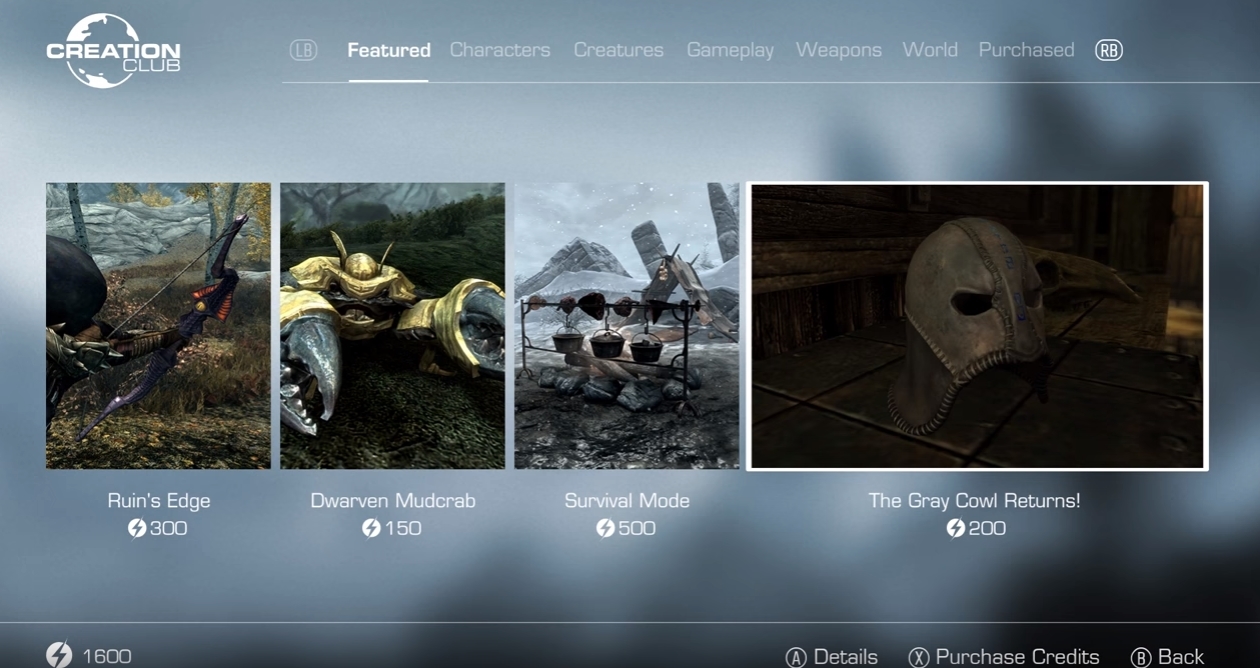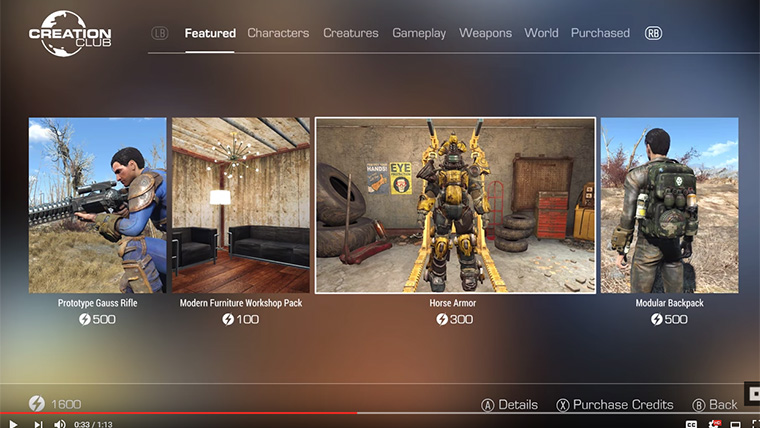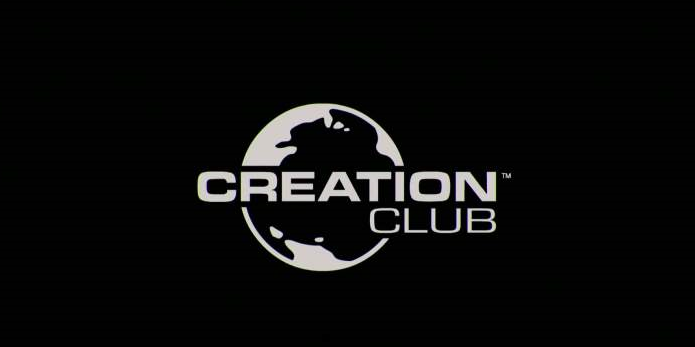During Bethesda’s E3 conference on June 11, the developer made an extremely controversial announcement that this upcoming summer, paid “mods” will be making their way to Fallout 4 and Skyrim Remastered for the PS4, Xbox One, and PC.
If you’ve played Elder Scrolls on PC in years past, this probably sounds horribly familiar to you. Many of us shudder to think back to when Bethesda and Valve made a similar (and ultimately fatal) mistake back in 2015, after they tried to introduce a paid modding structure for Skyrim via Steam Workshop.
If creation club is paid mods then burn it to the ground.
— Boogie2988 (@Boogie2988) June 12, 2017
It seems like history is repeating itself.
When Valve announced that purchasable mods would be making their way to to the PC version of Skyrim on Steam, the backlash was severe. Modders and players alike completely shunned the whole thing — appalled at the idea that of paying for mods just to enhance their game and do silly things like turning all dragons into Thomas the Tank Engine. In fact, the backlash was so harsh that Valve pulled the cord on the entire thing and issued refunds to those who had already purchased mods.
Why did players and modders alike lose their minds about it? The answer is simple — up until that point, mods were free. And the typical mindset of those involved in the modding community — whether creators or consumers — was that mods should be free, because players have already paid their dues by purchasing the base game, plus Season Passes and DLCs. So why should they pay extra for something fan-made that enhances their gaming experience?
Mods are created by the community, and those that create them do it because it’s their hobby. Modding is basically a pastime for most creators, and many of them aren’t really looking for any compensation for the work they do. They welcome positive feedback from users, as well as donations from those who can afford to support them that way. But when an external publisher tries to take that hobby and try to monetize it, things start to heat up.
Paid mods were especially problematic for both makers and fans because modders weren’t getting 100% of the money that was being paid for the mods they’d created. They weren’t even getting 50%. Valve was taking a 30% cut, and Bethesda was taking another 45% — leaving modders with just 25% of the payoff for a project they put 100% of the work into. The majority of players agreed that this was incredibly unfair, as Valve and BethSoft both were making money off the backs of passionate fans who were working for free.
So when Bethesda reintroduced the idea at this year’s E3, a lot of people took up arms immediately. Just take a look at the Skyrim subreddit right now to see how angry fans actually are.
Is the Creation Club any different from actual mods?
If you look at the official page on Bethesda’s site, Bethesda uses the words, “collection of all new content” and proceeds to describe that content as weapons, creatures, apparel, etc. So, how is this any different from regular mods? The truth is, it isn’t. This “collection of new content” is just another sneaky way to mask the word “mods” — because Bethesda for sure knows if it uses that word, it will relive the fan backlash from 2015.
In fact, Bethesda is trying so hard not to use the word “mods” that if you scroll down all the way to end of the page (the FAQ section), and take a look at the very last question, you’ll see how desperately (and poorly might I add) the studio is trying not to call the Creation Club as mods. But the thing is, all that content that will be created by the Creation Club…that’s the literal definition of mods. They are exactly the same mods that are available on Nexus, and in the game menus of Fallout 4 and Skyrim Remastered.
The only actual difference here is that mods created in the Creation Club are game modifications and enhancements which have been “officially approved” by Bethesda. They won’t corrupt your game file, they’ll always be compatible with each other, and they should function a bit more smoothly with the base game than the fan-made projects we’re used to tinkering with. And you may still be able to get achievements and trophies.
Some of these mods will be created by Bethesda, while others will be created by modders who have partnered up with the studio. But the idea of a partnership raises a lot of questions for fans and creators alike. If modders partner up with Bethesda, does it mean that they’re obligated to charge for all of their mods? What happens to modders who aren’t partnered with Bethesda? What does it take to become a partnered modder, anyway? And how will all of this be regulated, since modding is such a gigantic realm?
Bethesda sure as hell isn’t providing us any real answers.
The Creation Club is really nothing but trouble.
Besides completely shattering the idea that mods should be free and throwing a middle finger to all the modders who have provided amazing (and free) content to the community thus far, this whole Creation Club is a terrible thing because it could potentially extend to future releases.
As stated earlier, currently, the Creation Club will impact Skyrim Remastered and Fallout 4. But what about future titles? Will Fallout 5 and The Elder Scrolls 6 receive the same treatment? Chances are that they will if Bethesda has its way and convinces us to pay for mods. So if this Club slides by, we’re likely going to watch the free modding community go extinct.
But there might be a silver lining somewhere. Maybe.
Though the Creation Club is receiving a lot of negative feedback from almost everyone — as evidenced by the recap video’s like-to-dislike ratio — there is one positive thing that might come out of it.
This new structure could potentially be a blessing in disguise for PS4 users. As you may or may not know, the PS4 versions of Skyrim and Fallout 4 do not allow external assets for their mods, which is a fancy way of saying that modders cannot use outside elements (files not found in the base games and/or DLCs). With the Creation Club, PS4 users have the opportunity to download mods that do use external assets, and get the chance to have the same experience as PC and Xbox players — even if it means having to pay for that same experience.
They want you to think this is different, but it isn’t.
The Creation Club is the same thing that Bethesda and Valve tried to implement in 2015. It’s the same mistake, and it looks like Bethesda hasn’t learned anything from past experience. Once again, modders and gamers alike are annoyed and furious at the idea of having to pay for mods.
Anyone who’s taken part in the modding community knows just how much Bethesda has relied on them in the past — for things like unofficial bug patches, textural enhancements, and more. Trying to monetize that without the community’s input is a slap in the face. So there are a lot of questions that Bethesda needs to answer before its fans are going to swallow the idea of paying for mod content. And from the sentiments that fans have expressed so far, those answers better be damn good if they’re going to justify what the Creation Club is trying to do.









Published: Jun 13, 2017 05:38 pm